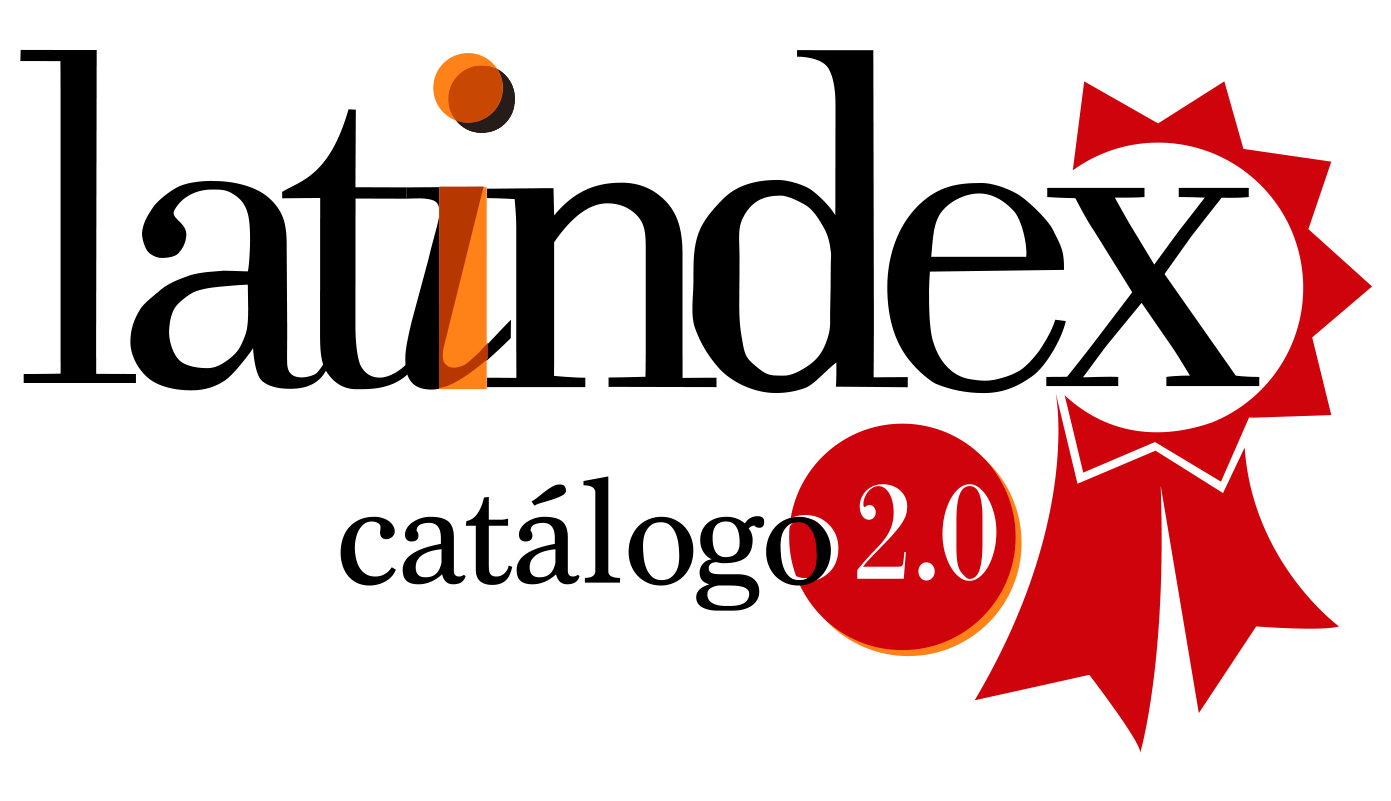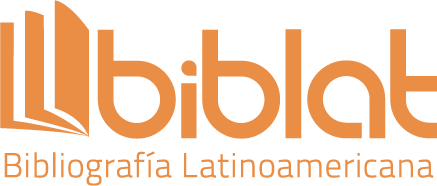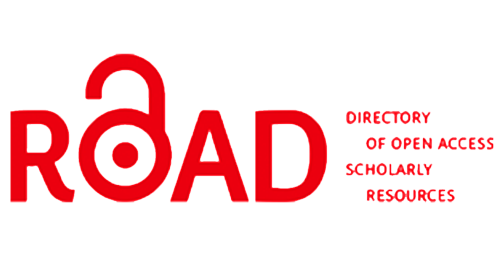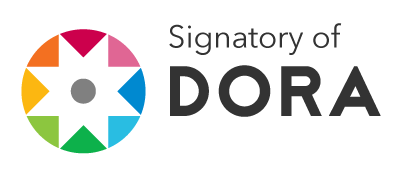Bibliometric study on the development of peer observations in school classrooms in Scopus (2012-2022)
DOI:
https://doi.org/10.38123/rre.v4i1.354Keywords:
Peer observation, formative evaluation, teacher evaluation, assessment, feedback, peer evaluation, teacher professional development., peer observation, formative evaluation, teacher evaluation, assessment, feedback, peer evaluation, teacher professional developmentAbstract
This article presents the results of a bibliometric analysis in the Scopus database on peer observation in the classroom. For this purpose, key words extracted from the literature and the UNESCO Thesaurus are used: peer observation, formative assessment, feedback, evaluation, student and teacher learning, feedback, peer assessment. A total of 308 documents were analyzed, with the support of Bibliometrix and VOSviewer software. Among the results, two stages of development stand out, 2018 as the initial and of strong productivity, and 2021, 2 large nodes and their relationship with other smaller ones among which stand out concepts such as: humans, human and education; the most intense areas of study in production are social sciences (280), psychology (42), arts and humanities (30). When analyzing the geographic area where the largest number of research papers are produced, the United States and Europe maintain a clear predominance in scientific productivity established in the SCOPUS database. Finally, considering the time span of the topics identified in this study, more research should be conducted on the use of new tools in the development of peer observation research in school classrooms and its practical work.
Downloads
References
Ahmad, Z. (2020). Peer observation as a professional development intervention in EFL pedagogy: A case of a reading lesson on developing the top-down processing skills of the preparatory year students. International Linguistics Research, 3(1), 1-15. https://doi.org/10.30560/ilr.v3n1p1
Alvarado, R. (2016). El crecimiento de la literatura sobre la ley de Bradford. Investigación Bibliotecológica: Archivonomía, Bibliotecología e Información, 30(68), 51-72. https://doi.org/10.1016/j.ibbai.2016.02.003
Aranda, V. (2011). Reflexión y análisis de políticas y prácticas innovadoras a la luz de las representaciones sociales y de la necesidad de una educación intercultural en la formación inicial docente. Estudios Pedagógicos, 37(2), 301-314.
Aravena-Gaete, M. y Gairín, J. (2021). Evaluación del desempeño docente: Una mirada desde las agencias certificadoras. Profesorado, Revista de Currículum y Formación del Profesorado, 25(1), 297-317. https://doi.org/10.30827/profesorado.v25i1.8302
Aria, M. y Cuccurullo, C. (2017). Bibliometrix: An r-tool for comprehensive science mapping analysis. Journal of Informetrics, 11(4), 959-975. https://doi.org/10.1016/j.joi.2017.08.007
Ariza, T., Granados, M., Ramiro, M. y Gómez-García, A. (2011). Una década de la Revista Española de Orientación y Psicopedagogía: un análisis bibliométrico de su evolución. Revista Española de Orientación y Psicopedagogía, 22(1), 38-57.
Ashenafi, M. (2017). Peer-assessment in higher education ― twenty-first century practices, challenges and the way forward. Assessment & Evaluation in Higher Education, 42(2), 226-251. https://doi.org/10.1080/02602938.2015.1100711
Asiú-Corrales, L., Asiú-Corrales, A. y Barboza-Díaz, Ó. (2021). Evaluación formativa en la práctica pedagógica: una revisión bibliográfica. Conrado, 17(78), 134-139.
Bailey, K. (2006). Language teacher supervision. CUP.
Bell, A. y Mladenovic, R. (2008). The benefits of peer observation of teaching for tutor development. Higher Education, 55(6), 735-752.
Bell, A. y Thomson, K. (2018). Supporting peer observation of teaching: Collegiality, conversations, and autonomy. Innovations in Education and Teaching International, 55(3), 276-284.
Bizarro, W., Sucari, W. y Quispe-Coaquira, A. (2019). Evaluación formativa en el marco del enfoque por competencias. Revista Innova Educación, 1(3), 374-390. https://doi.org/10.35622/j.rie.2019.03.r001
Bizarro-Flores, W., Paucar-Miranda, P. y Chambi-Mescco, E. (2021). Evaluación formativa: una revisión sistemática de estudios en aula. Horizontes, Revista de Investigación en Ciencias de la Educación, 5(19), 872-891.
Bradford, S. (1934). Sources of Information on Scientific Subjects. Engineering An Illustrated Weekly Journal, 137, 85-86.
Brandenburg, R. (2004). Roundtable reflections: (Re)defining the role of the teacher educator and the preservice teacher as ‘co-learners’. Australian Journal of Education, 48(2), 166-181.
Canabal, C. y Margalef, L. (2017). La retroalimentación: La clave para una evaluación orientada al aprendizaje. Profesorado, Revista de Currículum y Formación del Profesorado, 21(2), 149-170. https://doi.org/10.30827/profesorado.v21i2.10329
Carless, D. (2019). Feedback loops and the longer-term: towards feedback spirals. Assessment & Evaluation in Higher Education, 44(5), 705-714.
Contreras, G. (2018). Retroalimentación por pares en la docencia universitaria. Una alternativa de evaluación formativa. Formación Universitaria, 11(4), 83-94. https://doi.org/10.4067/S0718-50062018000400083
Correa, M. y Rueda-Beltrán, M. (2012). La evaluación docente en educación superior: uso de instrumentos de autoevaluación, planeación y evaluación por pares. Voces y Silencios, Revista Latinoamericana de Educación, 3(2), 59-76.
Dos-Santos, L. (2016). Foreign Language Teachers’ Professional Development through Peer Observation Programme. English Language Teaching, 9(10), 39-46.
Edwards, A., Gilroy, P. y Hartley, D. (2002). Rethinking teacher education : Collaborative responses to uncertainty. Routledge.
Espejo, R., Romo, V. y Hervias, M. (2021). La evaluación por pares a través de la observación en aula en educación superior. Perfiles Educativos, 43(172), 95-110. https://doi.org/10.22201/iisue.24486167e.2021.172.59553
Ferreira-De Sousa, G. (2020). Articulaciones entre la evaluación formativa alternativa y el aprendizaje significativo. Revista Meta: Avaliação, 13(41), 819- 839.
Fuertes-Camacho, M. (2011). La observación de las prácticas educativas como elemento de evaluación y de mejora de la calidad en la formación inicial y continua del profesorado. REDU. Revista de Docencia Universitaria, 9( 3), 237. https://doi.org/10.4995/redu.2011.11228
Gajardo, L., González, D. y Gajardo, L. (2020). La evaluación docente en Chile: la actitud del profesorado hacia los instrumentos que evalúan el desempeño profesional docente. Revista Inclusiones, 7(2), 517-556.
García-Sanz, M. (2014). La evaluación de competencias en Educación Superior mediante rúbricas: Un caso práctico. Revista Electrónica Interuniversitaria de Formación del Profesorado, 17(1), 106. https://doi.org/10.6018/reifop.17.1.198861
Granados, M., Ariza, T., Gómez-García, A. y Ramiro, M. (2011). Estudio bibliométrico de Aula Abierta. Aula Abierta, 39(3), 97-11
Grant, M. y Booth, A. (2009). A typology of reviews: An analysis of 14 review types and associated methodologies: A typology of reviews. Health Information & Libraries Journal, 26(2), 91-108. https://doi.org/10.1111/j.1471-1842.2009.00848.x
Harsell, D. (2010). Wikis in the Classroom: Faculty and Student Perspective. Journal of Political Science Education, 6(3), 310-14.
Hattie, J. y Timperley, H. (2007). The power of feedback. Review of Educational Research, 77(1), 81-112.
Hernández-Elizondo, J. y Salicetti-Fonseca, A. (2018). La evaluación formativa en el proceso enseñanza-aprendizaje en estudiantes de actividad deportiva de la Universidad de Costa Rica. Estudios Pedagógicos, 44(2), 297-310. https://doi.org/10.4067/S0718-07052018000200297
Iglesias, S., Hernández-García, Á., Chaparro-Peláez, J. y Prieto, J. (2021). Emergency remote teaching and students’ academic performance in higher education during the Covid-19 pandemic: A case study. Computers in Human Behavior, 119, 106713. https://doi.org/10.1016/j.chb.2021.106713
Imbernón, F. (2011). Un nuevo desarrollo profesional del profesorado para una nueva educación. Revista de Ciencias Humanas, 12(19), 75-86.
Johnson, M. (2012). Editors’ response: The uses and abuses of bibliometrics. Reproductive BioMedicine Online, 25(4), 435. https://doi:10.1016/j.rbmo.2012.07.012
Jons, L. (2019). El carácter de apoyo de las conferencias triádicas de formación docente: detalle de retroalimentación formativa transmitida. Revista Europea de Formación del Profesorado, 42(1), 116- 130.
Kamalski, J. y Kirby, A. (2012). Bibliometrics and urban knowledge transfer. Cities, 29, S3-S8. https://doi.org/10.1016/j.cities.2012.06.012
Kostoff, R., Tshiteya, R., Pfeil, K., Humenik, J. y Karypis, G. (2005). Power source roadmaps using bibliometrics and database tomography. Energy, 30(5), 709-730. https://doi.org/10.1016/j.energy.2004.04.058
Kuh, L. (2016). Teachers talking about teaching and school: Collaboration and reflective practice via Critical Friends Groups. Teachers and Teaching, 22(3), 293-314. https://doi.org/10.1080/13540602.2015.1058589
Loughran, J. (2007). Researching teacher education practices: Responding to the challenges, demands, and expectations of self-study. Journal of Teacher Education, 58(1), 12-20
Malderez, A. (2003). Observation. ELT Journal, 57(2), 179-181. https://doi.org/10.1093/elt/57.2.179
Margalef, L. (2014). Evaluación formativa de los aprendizajes en el contexto universitario: Resistencias y paradojas del profesorado. Educación XX1, 17(2). https://doi.org/10.5944/educxx1.17.2.11478
McArthur, J. (2019). La evaluación: una cuestión de justicia social. Perspectiva crítica y prácticas adecuadas.Narcea.
Meho, L. y Yang, K. (2007). A new era in citation and bibliometric analyses: Web of Science, Scopus, and Google Scholar. Journal of the American Society for Information Sci and Tech, 58(13), 2105-2125.
Mollo-Flores, M. y Medina-Zuta, P. (2020). La evaluación formativa: hacia una propuesta pedagógica integral en tiempos de pandemia: Array. Maestro y Sociedad, 17(4), 635-651.
Orsmond, P., Maw, S., Park, J., Gomez, S. y Crook, A. (2013). Moving feedback forward: Theory to practice. Assessment & Evaluation in Higher Education, 38(2), 240-252. https://doi.org/10.1080/02602938.2011.625472
Ortega, A. (2015). Disposición del docente universitario respecto a la evaluación de pares. Revista Internacional de Aprendizaje en la Educación Superior, 2(1), 40-46.
Ortega-Rubio, A., Murillo-Amador, B., Troyo-Diéguez, E., y Valdez-Cepeda, D. (2021). El índice h: sobrevaloración de su uso en la estimación del impacto del quehacer científico en México. Terra Latinoamericana, 39, e895.
Parra-León, S. y García-Martínez, I. (2021). El feedback y la experiencia evaluando como factores determinantes en la autorregulación de los estudiantes. Publicaciones, 51(1), 287- 301.
Peña-Carillo, M., (2005). El ambiente de aprendizaje inclusivo en el aula. Una mirada a la colaboración entre pares en dos grupos integradores de primaria regular. REICE, Revista Iberoamericana sobre Calidad, Eficacia y Cambio en Educación, 3(1), 817-822.
Pierce, J., Rendón, P. y Rao, D. (2018). Peer observation of rounds leads to collegial discussion of teaching. Teaching and Learning in Medicine, 30(2), 233-238. https://doi.org/10.1080/10401334.2017.1360185
Ramon, M. y De la Iglesia-Mayol, B. (2021). El feedback entre iguales y su incidencia en el desarrollo profesional docente. Revista Complutense de Educación, 32(3), 371. https://doi.org/10.5209/rced.70173
Ravela, P. (2015). Consignas, devoluciones y calificaciones: Los problemas de la evaluación en las aulas de educación primaria en América Latina. Páginas de Educación, 2(1), 49. https://doi.org/10.22235/pe.v2i1.703
Razo, A., Hernández-Fernández, J. y De la Cruz, I. (2022). Diseño e instrumentación de la evaluación docente entre pares en México. Education Policy Analysis Archives, 30. https://doi.org/10.14507/epaa.30.6224
Richardson, J. (2005). Instruments for obtaining student feedback: a review of the literature, Assessment & Evaluation in Higher Education, 30(4), 387-415. http://doi.org/10.1080/02602930500099193
Santos, L. (2016). A articulação entre a avaliação somativa e a formativa, na prática pedagógica: Uma impossibilidade ou um desafio? Ensaio: Avaliação e Políticas Públicas em Educação, 24(92), 637-669. https://doi.org/10.1590/S0104-40362016000300006
Segura, M. (2017). La función formativa de la evaluación en el trabajo escolar cotidiano. Revista Educación, 42(1), 118-137. https://doi.org/10.15517/revedu.v42i1.22743
Shute, V. (2008). Focus on formative feedback. Review of Educational Research, 78(1), 153-189.
Stigmar, M. (2016). Peer-to-peer teaching in higher education: A critical literature review. Mentoring & Tutoring: Partnership in Learning, 24(2), 124-136. https://doi.org/10.1080/13611267.2016.1178963
Troncoso, K. y Hawes., G. (2006). A propósito de la evaluación por pares: la necesidad de semantizar la evaluación y las prácticas docentes. Perspectiva Educacional, 48, 59-73.
Tunstall, P. y Gipps, C. (1996). “How does your teacher help you to make your work better?” Children’s understanding of formative assessment. The Curriculum Journal, 7(2), 185-203. https://doi.org/10.1080/0958517960070205
Urbizagástegui-Alvarado, R. y Suárez, J. (2008). La teoría epidémica en la literatura sobre la ley de Lotka. Investigación Bibliotecológica, 22(46), 91-111.
Van-Eck, N. y Waltman, L. (2010). Software survey: VOSviewer, a computer program for bibliometric mapping. Scientometrics, 84(2), 523-538.
Vera-Cazorla, M. (2014). La evaluación formativa por pares en línea como apoyo para la enseñanza de la expresión escrita persuasiva. Revista de Educación a Distancia (RED),43, 1-17.
Villa-Sánchez, A. y Poblete-Ruiz, M. (2011). Evaluación de competencias genéricas: principios, oportunidades y limitaciones. Bordón. Revista de Pedagogía, 63(1), 147-170.
Villardón-Gallego, M. (2006). Evaluación del aprendizaje para promover el desarrollo de competencias. Educatio Siglo XXI, 24, 57-76.
Wagner, D., Wang, I. y Reddien, P. (2011). Clonogenic neoblasts are pluripotent adult stem cells that underlie planarian regeneration. Science, 332(6031), 811-816. https://doi.org/10.1126/science.1203983
Whipp, P. y Pengelley, R. (2017). Confidence building through peer observation of teaching and peer coaching in university departments. A good investment for some and not others. International Journal of Mentoring and Coaching in Education, 6(2), 99-115.
Wiliam, D. (2011). What is assessment for learning? Studies in Educational Evaluation, 37(1), 3-14. https://doi.org/10.1016/j.stueduc.2011.03.001
Yiend, J., Weller, S. y Kinchin, I. (2014). Peer observation of teaching: The interaction between peer review and developmental models of practice. Journal of Further and Higher Education, 38(4), 465-484.
Zimmerman, B. (2000). Attaining self-regulation: A social cognitive perspective. En M. Boekaerts, P. R. Pintrich y M. Zeidner (Eds.), Handbook of self-regulation (pp. 13-39). Academic Press. https://doi.org/10.1016/B978-012109890-2/50031-7
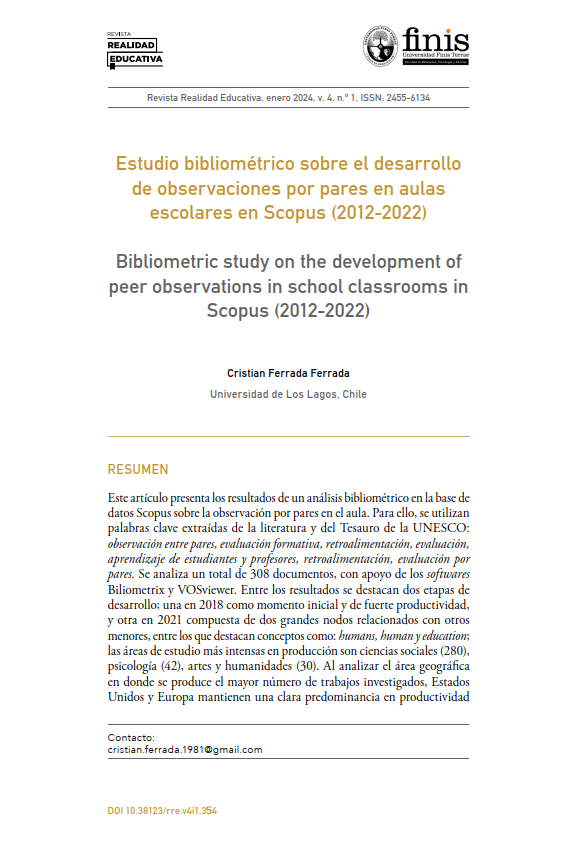
Published
How to Cite
Issue
Section
License
Copyright (c) 2024 Cristian Ferrada Ferrada

This work is licensed under a Creative Commons Attribution-NonCommercial-NoDerivatives 4.0 International License.
Los contenidos de esta revista se distribuyen bajo una licencia Atribución/Reconocimiento-NoComercial-SinDerivados 4.0 Internacional.


